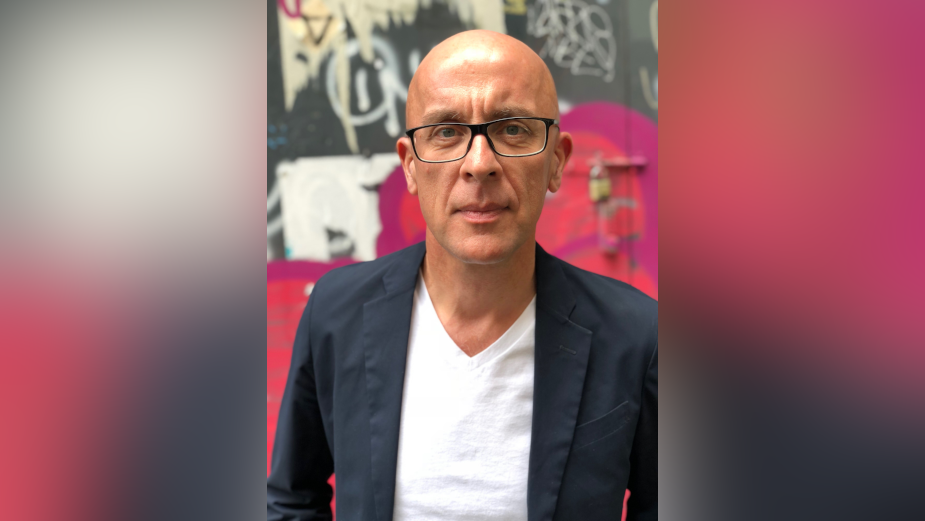
The VFX Factor: Matt Bristowe on Why VFX Is the Marriage between Art and Science

Matt Bristowe is global director of VFX for Hogarth Worldwide.Over the course of his career, Matt has worked across commercial, feature film VFX, episodic VFX, DI, post and feature animation winning BAFTA, EMMY and Lumiere awards and nominations. His 25+ years in the industry have seen him work with Warner Bros, Netflix, Amazon Studios, Disney, DreamWorks, Sony Pictures, Paramount, Lucasfilm and Marvel on landmark shows such as Star Wars, the Harry Potter Franchise, Stranger Things, Guardians Of The Galaxy, The Crown, Gravity and more.
LBB> What’s the biggest misconception people have about VFX?
Matt> One of the biggest misconceptions around VFX is how easy it might be to ‘fix it in post’. My starting point, when looking at a script or storyboard, is always, how are we going to capture this in camera, then finding the point where we need to lean into the digital world to enhance or tell our story. Even in the most fantastical worlds we create, we are always striving for realism. Decision making in pre-production and then on set, has a significant impact when we get into post, specifically for budget, time and final creative product.
LBB> There are two ends to the VFX spectrum - the invisible post and the big, glossy 'VFX heavy' shots. What are the challenges that come with each of those?
Matt> I’ve been lucky enough to have spent a lot of time in both camps, and each has layers of complexity unique to the creation of that specific shot or sequence. The question remains the same, do I subconsciously believe what I’m seeing, and therefore invested in the story and not the effects. Some of the biggest challenges I’ve faced in the ‘invisible’ world is lighting, because you are always fighting against what is captured on the day. I recently worked on a mega budget Hollywood production – story location – Saudi Arabian Desert – Shoot location – Watford. No matter how much money and talent the studio threw at the problem, it never quite hit the spot. Unfortunately this was pre Virtual Production. The blockbuster effects were amazing, even picking up VES awards, but the studio and exterior lighting were a giveaway.
LBB> As a VFX person, what should directors be aware of to make sure you do the best possible job for them?
Matt> Cast your VFX supervisor and producer as you would anyone else on the project. Bring VFX in right at the start of the process. Whatever the budget, there’s creative problems to solve, and the sooner the dialogue happens, the smoother and more successful the process and the work.
LBB> VFX is a true craft in the classic sense of the word. Where did you learn your craft?
Matt> It might sound a cliché, but you are always learning. The beauty of this is industry is that its always moving forward. Our craft is technology driven, so whether it's in a version update to Houdini, virtual production or how AI can support art, there’s always something to learn. However, even as a technology driven industry, it’s still the people that are at its creative heart. No project is delivered without the artists, and no team of artists functions without their producers and coordinators, so my craft is really, managing, understanding and listening to people. In my early years at MPC, digital effects, digital colour grading were really just emerging so for much of the time, as well as learning ourselves, we had to take the client on the journey with us, hold their hands and educate them on the potential afforded by the new technologies. I learned about different approaches to filmmaking and collaboration working with top directors and DOPs like Danny Boyle, Anthony Dod Mantle, Wes Anderson, David Yates, Tim Burton, Steve McQueen and Ken Loach. At DNEG I Iearnt about scale and navigating the world of Hollywood execs. And at One Of Us, I learned about Art.
LBB> Think about the very, very start of a project. What is your process for that? Do you have a similar starting point for all projects?
Matt> Really listening to the director, understanding the visual story. Not using VFX for VFX sake and trying to hone into what is truly at the heart of a project and being prepared to go on the journey. Working with Wes Anderson, a truly unique auteur, on Fantastic Mr Fox, was challenging in the beginning, but his producer said to me “You're in Wes’s world now, just go with it”, and I did, embracing his process, and it's still one of my favourite projects.
LBB> We imagine that one of the trickiest things with VFX is, time issues aside, deciding when a project is finished! How do you navigate that?
Matt> Nothing is ever truly finished, there’s always one more iteration! You’ve got to trust the director and their vision, that budget aside, they know what they are trying to achieve. Some projects you just have to say, we are done, we can keep spinning the wheels, but are we going to make it better, and ultimately, do the next tiny iterations add to the story? Building a good relationship with the producer is key so that you can have those honest conversations without spooking the director. Some directors on some projects really push you beyond what you thought was achievable, but the outcome is so incredible you know it was worth it. I experienced this on ‘Gravity’ with Alfonso Cuaron, which for me, is a perfect movie (you soon forget the pain!)
LBB> Is there a piece of technology or software that's particularly exciting you in VFX? Why?
Matt> I’m excited by what we can achieve with USD, so that we can focus our talents on the craft and not be hampered by legacy pipelines.
LBB> And as real time tech and games engines become ever faster and more sophisticated, how do you see that shaping or changing the role of VFX and its place in the production pipeline (e.g. thinking about things like virtual production)?
Matt> It’s already changed VFX production, and in turn, filmmaking, but it's still geared towards the bigger budget, VFX heavy blockbusters. Where it's really exciting, is in the commercials and marketing space, not just for product, but also social messaging and social campaigns.
LBB> VFX is a craft that relies on you really looking at nature - how light works, how gravity works, the mannerisms of a kind of creature, how crowds work, skeletons, explosions… whether it's animation or compositing or anything else… So how do you like to approach the research side of your job? What’s the most random or intriguing thing you’ve learned from working on a project?
Matt> VFX really is the marriage between art and science. I love the minutiae of fine detail, those things completely invisible to the viewer, and a great project is the sum of all these tiny elements. Going back to Mr Fox, and it's not VFX, but practical. For the main tree in the film, Wes wanted each leaf to be a specific shade of brown. This was achieved by a light dab of a semi wet tea bag onto a specific type of paper. But not just any tea, different types, at different saturations and different concentrations. I’ll never forget, on set, a mountain of used tea bags!
LBB> When you’re watching a VFX-heavy ad or movie, what are the tells that you look for to figure out how well crafted it is?
Matt> Lighting and the contact points. Building and animating a creature or effect, is only 90% of it, it’s the interaction with live action where the magic is.
LBB> How did you first get into the industry? What was your very first job in the industry and what were the biggest lessons that you learned at that time?
Matt> I worked at Soho house in the mid ‘90s running their small cinema in the Greek Street club (the first and only one back then!). Here I got to meet a huge variety of creatives and execs in the industry, which was a great place for networking. Things really took off when I joined MPC in the late nineties when VFX was really still in its infancy. Then the Harry Potters came to town and the industry just exploded. What I really learned back then was how to look after your clients and your crew. Great crew will get you through the most challenging projects and a good client will stay with you.
LBB> What was your first creative milestone in the industry – the project you worked on that you were super proud of?
Matt> Seeing your team's work on screen and your name in the credits is always a buzz, but Danny Boyles ‘Slumdog Millionaire’ is a special one. Danny is such a collaborative director, as well as being a lovely human being, so to be part of his core team was of great value. I was his DI producer back then, Slumdog started so small, but we shepherded it on its journey and then it just exploded, and for a short time it was the biggest film on the planet. Picking up awards is always a special milestone, a Lumiere award for ‘Gravity’, BAFTA wins for ‘The Crown’ season one, and and EMMY for ‘The Alienst’, but these are all massive team efforts, it might be your name up there, but no one achieves these alone.
LBB> From a VFX perspective, which ads have you seen recently that you've been particularly fond of and why?
Matt> Still loving the ‘Ladbrokes Rocky’ ad, totally seamless!













